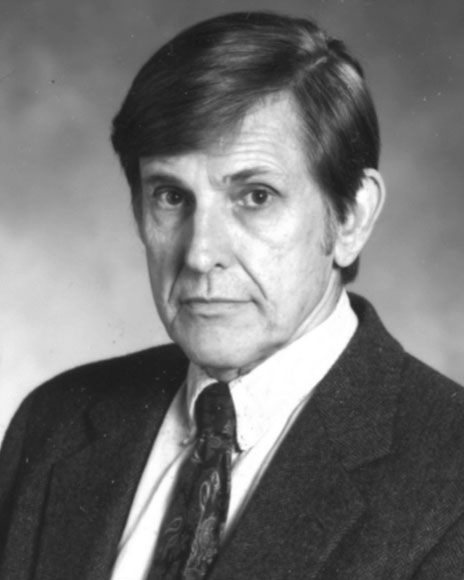Sydney Shoemaker ’53

September 3, 2022, in Ithaca, New York, following a brief illness.
Professor emeritus of philosophy, Sydney was a leading figure in the College of Arts and Sciences at Cornell. Remembered as a powerful thinker and brilliant teacher, he contributed to the outstanding reputation of Cornell philosophy during the latter half of the 20th century.
Sydney was born in Boise, Idaho. At Reed, he wrote his thesis, “The Critical Common-Sensism of Charles Sanders Peirce,” advised by Prof. Edwin Garlan [philosophy 1946–73]. He attended the University of Edinburgh as a Fulbright scholar and then earned his PhD at Cornell. After teaching briefly at Ohio State University, he returned to Cornell in 1961, becoming a full professor of philosophy at the university in 1970. During that time, he trained many well-known philosophers.
Fusing disparate points of view, Sydney became one of the great Cornell philosophers of the 20th century, said Derk Pereboom, Cornell professor of philosophy and ethics and senior associate dean for arts and humanities.
“He earned his doctorate at Cornell in 1958 under the supervision of Norman Malcolm, at the time the leading advocate in the United States of the philosophy of Ludwig Wittgenstein,” Pereboom said, “Shoemaker’s work, especially early in his career, was marked by this influence.”
Characterized by a lack of vanity and diffident self-presentation, Sydney had a commanding way of sharing ideas. He was a leading figure in the fields of metaphysics and philosophy of mind, and published many papers in these areas. Beginning in the late ’60s, Cornell became a center for scientific realism, a contrasting point of view. “In subsequent decades,” Pereboom said, “Shoemaker’s research was fueled by a productive tension between these two philosophical perspectives.”
“He was the reason I wanted to go to Cornell for graduate study and he was the most wonderful adviser I could have imagined,” Richard Moran, professor of philosophy at Harvard University, wrote. “He was the opposite of an adviser who insists that you conform to their particular way of seeing the problems. With him, I always felt that precious combination of freedom, guidance, and encouragement that anyone needs to flourish in graduate school.”
He received a George Santayana Fellowship at Harvard University, a John Locke Lectureship at Oxford University, a Josiah Royce Lectureship at Brown University, a National Endowment for the Humanities Fellowship, and a Guggenheim Fellowship. He was elected to the American Academy of Arts and Sciences in 1996.
Sydney was the author of Self-Knowledge and Self-Identity (1963) and Identity, Cause and Mind: Philosophical Essays (1984). With Carl Ginet, he coedited Knowledge and Mind (1983) and cowrote Personal Identity (1984) with Richard Swinburne. He served on the editorial boards of the Philosophical Forum, Philosophy Research Archives and Philosophical Studies and was a coeditor of the Philosophical Review and general editor of Cambridge Studies in Philosophy. He was a former chair of Cornell’s philosophy department and president of the Eastern Division of the American Philosophical Association. Sydney is survived by his wife, Molly, and his son, Peter.
Appeared in Reed magazine: December 2022
comments powered by Disqus


![Photo of Prof. Marvin Levich [philosophy 1953–94]](https://www.reed.edu/reed-magazine/in-memoriam/assets/images/2022/LTL-levich1.jpg)
![Photo of President Paul E. Bragdon [1971–88]](https://www.reed.edu/reed-magazine/in-memoriam/assets/images/2020/Bragdon.jpg)
![Photo of Prof. Edward Barton Segel [history 1973–2011]](https://www.reed.edu/reed-magazine/in-memoriam/assets/images/2020/Segel.jpg)








































































